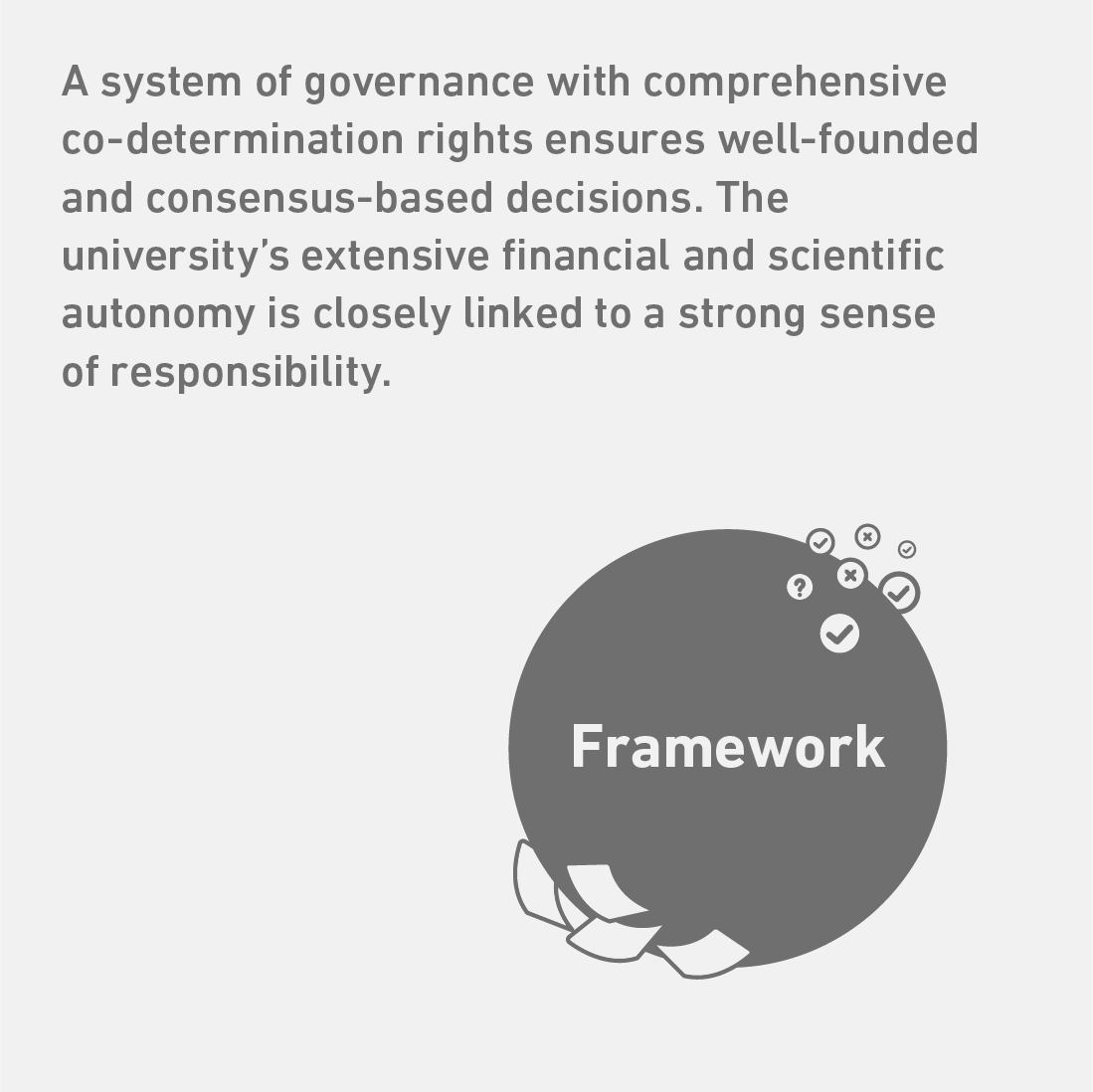Governance
Continuous development guided by autonomy and responsibility
The ETH Act grants the university academic, organisational and financial autonomy. This is in addition to a strong sense of individual responsibility, which the Executive Board encourages all ETH employees to embrace. ETH Zurich’s leadership combines a presidential structure with a well-established system of participation and freedom at the academic department level. Within the university, the President has overall accountability for the areas of strategy, appointments and finances. The system of participation ensures broad acceptance of the decisions made. The rETHink organisational development project is a good example of the university’s ability to focus its strengths and benefit from the creative drive of its members.
New Vice President for Finance and Controlling –
Development must continue despite
financial constraints
On 1 April 2023 Stefan Spiegel took up the office of the new Vice President for Finance and Controlling at ETH Zurich. The 52-year-old Swiss manager, who studied theoretical physics at the University of Zurich, is a finance expert and boasts extensive leadership experience in state-affiliated firms and listed companies. Before switching to ETH Zurich, he served as Chief Financial Officer and member of management at SBB Cargo AG. Stefan Spiegel took over the reins from Robert Perich, who stepped down from the Executive Board of his own volition on 31 March 2023.
New Vice President for Research –
“For me, it’s about excellence in research”
The ETH Board appointed Christian Wolfrum as Vice President for Research at ETH Zurich with effect from 1 January 2023. The biomedical scientist has been teaching and researching at ETH as a professor since 2008. He heads the Laboratory of Translational Nutritional Biology, as well as being Director of Studies for the Health Sciences and Technology degree programme and the Bachelor’s degree programme in Human Medicine, which he helped establish. He was also formerly Assistant Vice President for Medicine. He takes over from Detlef Günther, who stepped down at the end of 2022 after holding the post for eight years.
Threat of illegal transfer of know-how
The illegal transfer of intellectual property, know-how and technologies poses a real threat for Switzerland’s research community and the country as a whole. Institutions with a strong international orientation that specialise in the natural sciences and technology are particularly attractive targets for illegal information gathering. ETH is taking preventive measures to prevent this illegal activity.


Although the openness and international orientation of Swiss universities and research institutes is a positive aspect, it also carries the threat of unlawful information gathering by foreign intelligence agencies. The Swiss federal government’s Technopol programme aims to raise awareness in the academic community about the problem. One of the most effective forms of protection is to ensure higher education institutions are fully acquainted with current export and goods control legislation. ETH has a team of experts with the necessary specialist skills whose mission is to prevent the illegal transfer of intellectual property, know-how and technologies.
Protection of intellectual property rights
Alongside teaching and research, the commercialisation of research findings is part of ETH Zurich’s mandate. The goal of technology transfer is to produce the maximum economic benefit for society and to plough back money into research. Protecting intellectual property is a priority for ETH Zurich.
A strategic cornerstone
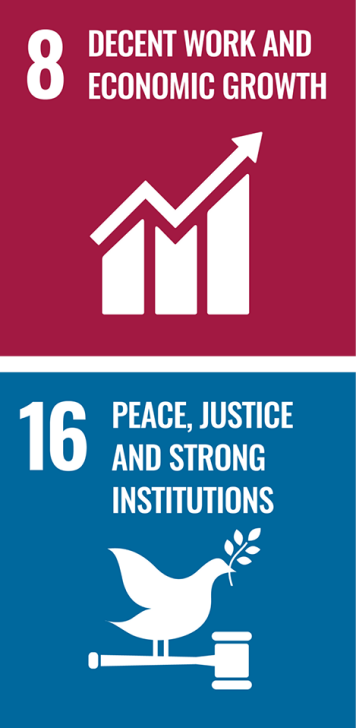
Hundreds of inventions and patents are filed and new licences issued each year at ETH Zurich – all based on intellectual property rights. The Executive Board plans to dedicate more resources to the strategic development of intellectual property issues. One point of emphasis will be protecting the intellectual property created at ETH Zurich so that researchers can use their knowledge in spin-off companies. Given this backdrop, the Executive Board has appointed an Associate Vice President for IP Policy: Stefan Bechtold, Professor for Intellectual Property, who took up the post on 1 September 2023.
Executive Board and organisation chart
ETH Zurich covers a very broad and innovative academic spectrum. Its 16 academic departments, along with various strategic initiatives, competence centres and networks, encourage cross-disciplinary cooperation. Comprising seven members in total, the ETH Executive Board is the university’s supreme committee. It has overall control of the organisation, is responsible for quality assurance as a whole and ensures that the university fulfils its social, cultural and economic responsibilities.
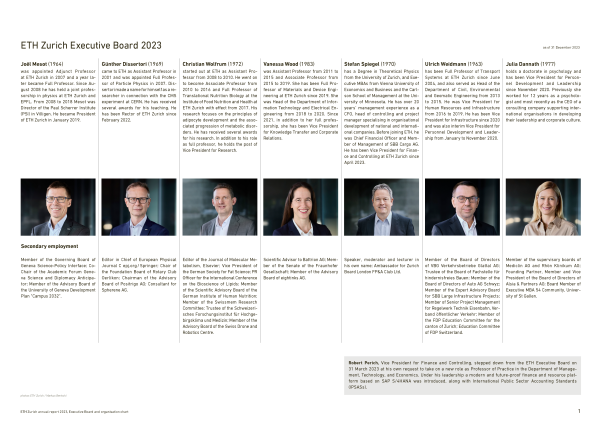
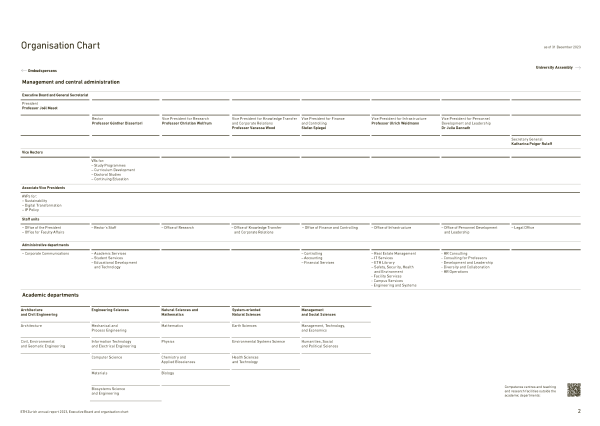
Risk management
At ETH Zurich, the purpose of risk management is to protect the tangible and intangible assets on which the success of ETH Zurich depends, in particular human capital, infrastructure and reputation. Whereas the President has overall accountability for risk management, responsibility for implementation lies with the Vice President for Finance and Controlling. The Executive Board is informed regularly about any substantive risks.
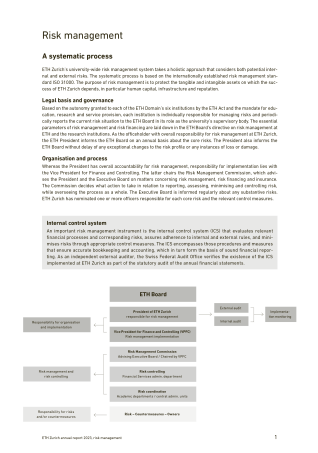
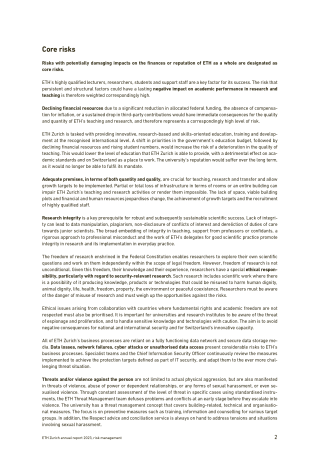
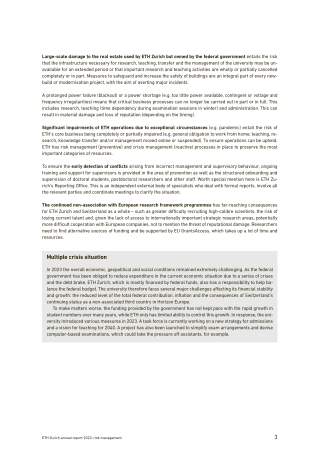
The Annual Report is produced in German and translated into English. Only the German version is binding.
© ETH Zurich, April 2024

